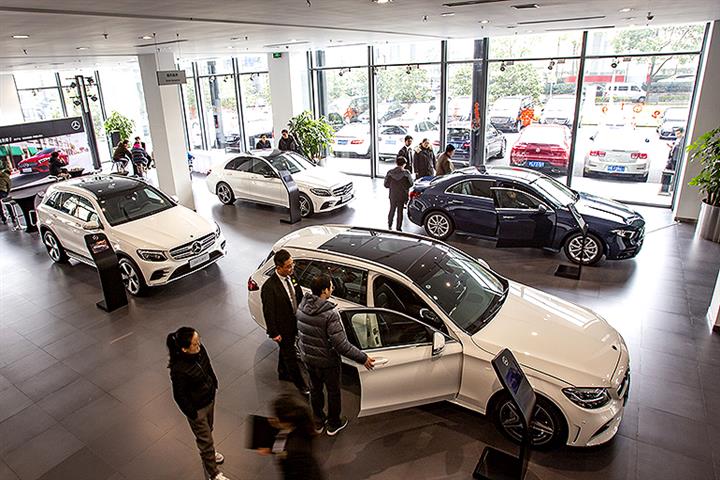 Over 40% of China’s Auto Dealers Close Shop in November as Business Craters
Over 40% of China’s Auto Dealers Close Shop in November as Business Craters(Yicai Global) Dec. 5 -- Some 41.2 percent of China’s automobile 4S, or Sale, Spare parts, Service and Survey, stores went out of business in November and most of them had already stopped operations for over two weeks as they become the latest casualties of moribund car sales, Securities Daily reported today.
More than 73 percent of auto dealers were not able to meet their sales target last month, the report said. And turnover at 60 percent of these was below 80 percent of their goals.
The auto dealers’ inventory index stood in warning territory at 65.3 percent in November, surging 9.9 percentage points year on year and far above the 50 percent benchmark, according to a report by the China Automobile Dealers Association. Some dealers have begun to lay off staff and cut salaries as they face difficulties in shifting stock and cashflow dries up.
China’s auto market has been crippled by the Covid-19 pandemic. Car sales last month are likely to only tally 1.7 million units, the association said. This is even less than in October, when 1.85 million units changed hands.
To help boost sales, the government said in June that it will halve the tax levied on passenger vehicles costing up to CNY300,000 (USD43,000) and with an engine capacity of under two liters.
But this tax break is due to expire at the end of the year, along with new energy vehicle subsidies, which have been in place for 13 years.
Most auto dealers hope that the tax breaks will be extended and even expanded to include all passenger vehicles, the report said, citing Lang Xuehong, deputy secretary-general of the association.
CADA recommends that local governments issue cash subsidies and help to reduce rents for dealers, it said. Car manufacturers should also be more flexible when setting sales targets and take Covid-19 outbreaks and other factors into account to reduce pressure on 4S stores.
China’s auto sales will pick up this quarter, if the tax breaks and other preferential policies are not renewed, said Chen Shihua, deputy secretary-general of the CADA. This is because people with plans to buy cars are likely to purchase now to take advantage of the tax breaks.
However, should car buyers bring forward their vehicle purchase plans, then next year, the auto market might experience a ‘cliff-like’ decline, he added.
Editor: Kim Taylor